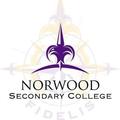Mathematics

Year 7 & 8
Aims/Objectives:
- To engage students in the exciting and challenging world of Mathematics
- To equip students with mathematical skills and knowledge that will promote confidence and competence in daily life
- To develop students’ knowledge and skills in Mathematics that will facilitate access to employment or further study
- To develop mathematical language that will enable ideas and written work to be communicated clearly and with precision
- To promote students’ learning through cooperative group work and independent tasks
- To enhance students’ learning through the effective use of technology
- To engage students by relating Mathematics to real life situations.
Contents:
The content strands of Mathematics are: - Number, Algebra, Space, Measurement, Statistics and Probability. Within these areas, a range of student tasks cater for differences in preferred learning style and ability level. Improving student literacy is also a focus and mathematical tasks are designed with this in mind. The curriculum focuses on students becoming proficient in mathematical understanding, fluency, reasoning and problem solving and is consistent with the Victorian Mathematics Curriculum.
Tasks/Activities:
The following demonstrate the wide range of activities used to assist student learning:
- Skills practice through completion of textbook work, homework sheets, revision tasks and web-based activities
- Cooperative group work tasks to introduce topics and consolidate understanding through peer learning
- Assignments, projects and problem solving tasks that require students to apply their skills and problem-solving strategies to solve real-life problems
- Problem solving strategies are developed through graded activities ranging from concrete manipulation of objects through to more abstract problems
- Technology tasks are used to develop computer skills, assist students to solve complicated problems and engage them in their learning.
Opportunities to extend learning:
All Year 7 and 8 students will be given the opportunity to participate in various Australian and International Mathematics competitions which challenge the mathematical thinking of secondary college students and demonstrates the importance and relevance of mathematics in everyday life.
Student assessment:
- Tests
- Investigations
- Homework
Year 9
Course Description:
Through the study of Mathematics, students will gain the skills and knowledge to confidently and competently deal with the mathematics and problem solving of daily life. They will also begin the transition from students with a basic mathematical knowledge into students with analytical and abstract problem solving skills.
Areas of study:
These will include:
- Number (number patterns, operations with number and surds)
- Algebra (expansion and factorisation of algebraic terms, linear equations and graphs, transposition and substitution and indices)
- Probability (calculating probabilities of chance events using tree diagrams and arrays)
- Statistics (analysing and representing data using measures of centre and spread, frequency tables and graphs)
- Measurement (‘Pythagoras’ theorem and trigonometry, volume and similarity)
- Space (algorithmics and transformations)
- Reasoning and Strategies (problem solving and projects)
Assessment
A combination of topic tests and investigations
